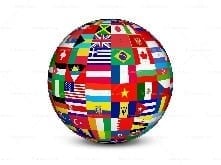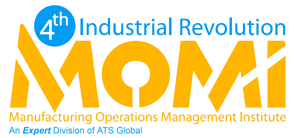The ISA-95 standard “Enterprise – Control System Integration” , also known as IEC/ISO 62264, provides an information model used to define the interface between control functions and other enterprise functions, comprising a standard terminology and a consistent set of concept and models. It helps to define and integrate the activities between business and manufacturing operations. The ISA-95 models are used to determine the information to be exchanged between systems for finance and logistics, and systems for production, maintenance, inventory and quality. The ISA-95 standard can be used for several purposes, e.g. as a checklist and guide for the definition of user requirements, for the selection of MOM suppliers, or as a basis for the development of MOM solutions.
Now, in the era of the 4th Industrial Revolution, new technologies are introduced making existing technologies obsolete. However, ISA-95 does not become dated over time the way technology would. It provides a smarter way to push ahead. An information model is not the same thing as infrastructure, nor is it a protocol. Information is about the material that needs to be processed, shipped and handled. Infrastructure and protocols are the means by which we transport that material information. They compliment each other; they are not the same. ISA-95 works to improve manufacturing information clarity, structure and consistency independent of anything involving an implementation using either legacy or current technology. ISA-95 is technology-agnostic.

The ISA-95 standard still contributes to improved communication between all parties involved, enabling users to better identify their needs, reducing costs of automating manufacturing processes and reduce lifecycle engineering efforts, as it has done for about two decades and will do into the future.
This comprehensive course will lead you through all eight current parts of the standard. By group discussions and pragmatic exercises, you will discover how to determine:
- Scope of manufacturing operations.
- Activities with respect to production, maintenance, quality test and inventory operations.
- Information that must be shared between control functions and enterprise functions.
You will cover:
- Manufacturing processes, like detailed scheduling, dispatching, execution, data acquisition, tracking, performance analysis, resource management and definition management.
- Information models and objects, like operations resources, operations/process segments, operations definition and capability, operation schedules, operation performance.
- Demarcation between Enterprise Planning (ERP) and Manufacturing Operations Management (MES/MOM).
- Defining interfaces in a structured way and much more …
Who Should Attend?
This course is ideal for manufacturing & IT professionals, including:
- IT and OT Professionals, Architects, Application managers, (master) data & information specialists/architects, Automation specialists, BI specialists
- Process specialists
- System Integrators, vendors
Anyone involved in the digital transformation of manufacturing processes
Classroom and Online
Classroom: The program is taught in a classroom environment on three consecutive business days.
Online: Instructor lead online version of the same program, delivered in 4 five-hour sessions on 4 consecutive business days.
This course is also available as:
2 days – Applying ISA-95 for operations extended
Both courses can be planned in-house for 5-12 participants.
|
|

21-July-2026
Online (14:00 - 19:00 CET / 08:00 - 13:00 EDT)
Instructor(s): Gerard Ipskamp
Registration Fee:EUR 2600
